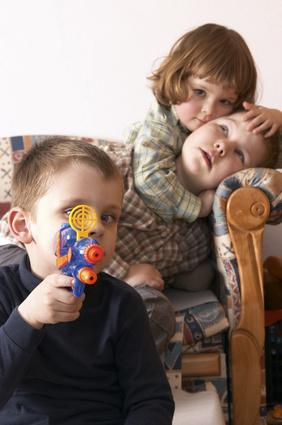Behavior problems, also known as conduct disorders, typically do not appear suddenly. In many cases, children and teenagers show warning signs of behavior problems that–if they are diagnosed and treated early–the children can learn to manage. Look for these behaviors and symptoms that indicate an eventual behavior problem, and seek out appropriate support for your child.
Behavioral Issues
Children naturally explore surroundings and test limits. However, certain behaviors indicate that children may develop behavior problems. Children should not want to engage in self-destructive practices or repeatedly threaten themselves, others or pets. Although experimenting with toys and household objects is developmentally appropriate, aggressively destroying objects may indicate a behavioral issue. Other triggers include frequent lying, stealing, and long and severe tantrums beyond the terrible 2’s. In older children, preteens and teenagers, issues such as skipping school, smoking, drinking, drug use, sexual activity and defiance to adults indicate behavioral problems.
Environmental Issues
Certain environmental factors may produce signs of behavior problems. Lack of basic needs, such as food, sleep, health care and bonding with loved ones are obvious environmental factors. Less obvious, but quite pervasive, is lack of discipline. Children may often attempt to defy parents and authority figures, but parents who do not stick to limits can create deeper behavioral problems in their children. Set short-term goals with defiant children, and give specific, positive feedback toward progress made. Never shame children in front of peers or strangers. Instead, speak with them privately and calmly, yet assertively, informing them of your age-specific expectations. Children should gradually demonstrate an understanding of your limits.
Physical Signs
Certain physical signs may indicate that your child can develop behavioral problems. For example, gone untreated, hyperthyroidism or hypothyroidism affects children’s ability to concentrate. Likewise, food allergies, especially intolerance to sugar, can make children hyperactive and, paired with other factors, can result in a diagnosis of attention deficit disorder. Iron deficiency can result in poor recall skills and general low school performance.
Photo Credit
- children image by Renata Osinska from Fotolia.com





